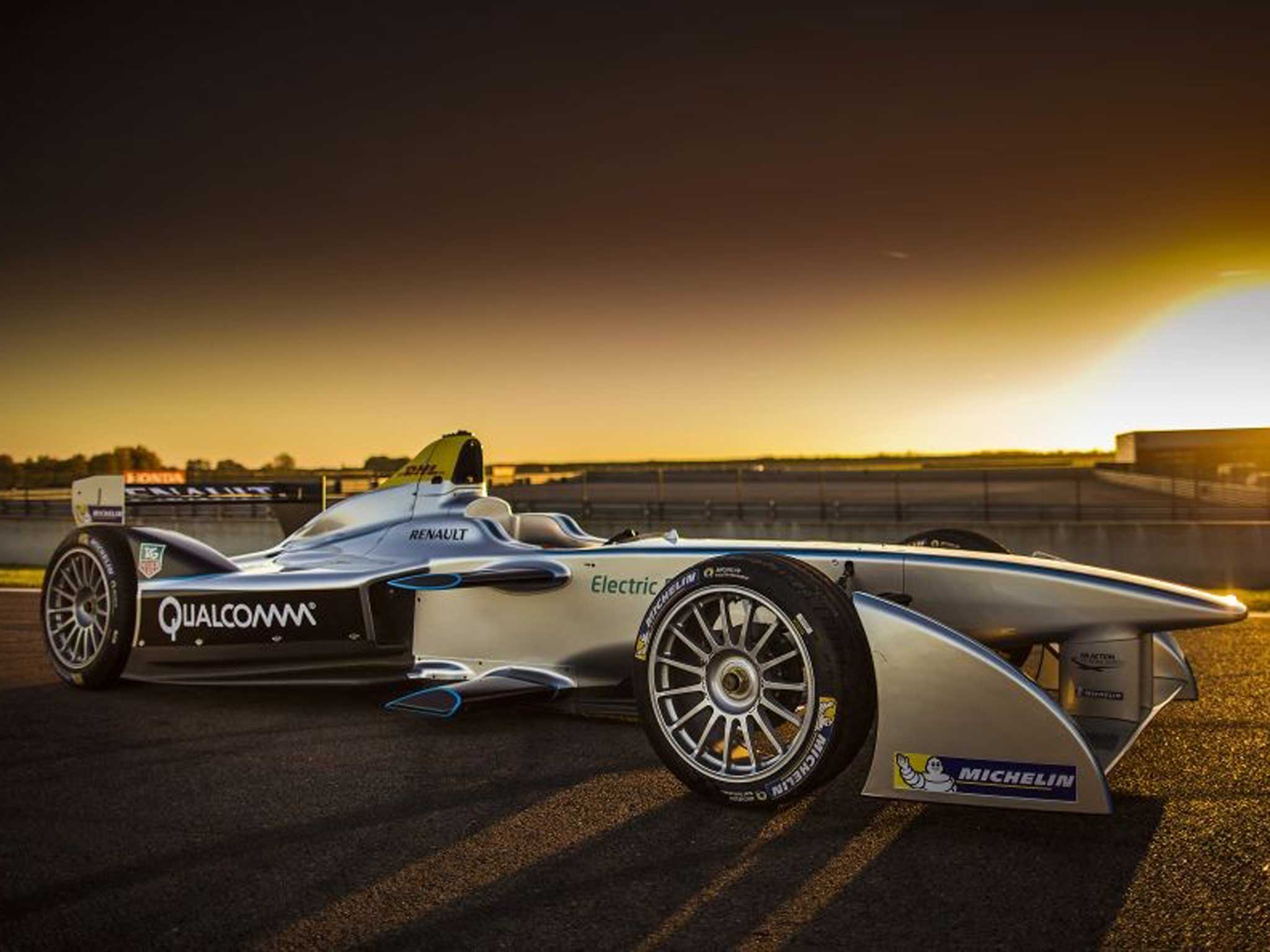They’re going to need a long extension cable: An electric version of F1 aims to turbo charge the environment-friendly car market

Your support helps us to tell the story
From reproductive rights to climate change to Big Tech, The Independent is on the ground when the story is developing. Whether it's investigating the financials of Elon Musk's pro-Trump PAC or producing our latest documentary, 'The A Word', which shines a light on the American women fighting for reproductive rights, we know how important it is to parse out the facts from the messaging.
At such a critical moment in US history, we need reporters on the ground. Your donation allows us to keep sending journalists to speak to both sides of the story.
The Independent is trusted by Americans across the entire political spectrum. And unlike many other quality news outlets, we choose not to lock Americans out of our reporting and analysis with paywalls. We believe quality journalism should be available to everyone, paid for by those who can afford it.
Your support makes all the difference.It will accelerate from 0 to 60mph in less than three seconds, before topping out at close to 140mph, but unlike most race cars, the all-new Spark-Renault isn’t a high-octane monster but an electric green machine that could boost the electric car industry.
Formula E, a new electric racing championship that will lead “a silent revolution”, is the brainchild of Alejandro Agag, a businessman and former political aide to the Spanish president, who is already team principle of a GP2 race team. “There are more sports fans in the world than environmentalists,” he said. “But at the moment people don’t think of electric cars as fun or cool. Formula E hopes to change that.”
According to Mr Agag the FIA-approved championship is “a new form of environmentally friendly racing” that will see 10 teams compete on 10 closed-street races around the world, starting in Beijing in September 2014 before coming to London in June 2015.
Drivers will stop for a new car halfway through each hour-long race – for a fresh electric battery. Despite this, Mr Agag hopes to create excitement with social media interaction: “Fans will be able to vote for their top driver during the race. And the driver with the most votes earns an extra power surge.”
It has been described as a “glorified milk-float race”, but Mr Agag argues Formula E will “push electric cars into the mainstream”. He is also quick to point to a report from Ernst & Young which predicts the new championship could encourage the purchase of 77 million new electric cars, create 42,000 green jobs and save 900 million tons of CO2 being emitted into the atmosphere – the equivalent of Italy’s annual output – over the next 25 years.
Chas Hallett, What Car? editor in chief, told The IoS that motorsport has always been a “valuable marketing tool” for selling cars but that manufacturers “need a lot more awareness of electric vehicles to drive sales”.
Electric car sales in the UK jumped by 25 per cent in the last quarter to 1,149 registrations, according to the latest government figures, but growth is still 20 per cent slower than the rest of the new car market.
The Renault-Nissan alliance, the biggest player in the electric market, has admitted the two firms will miss their target of selling 1.5m cars between them by the end of 2016; Vauxhall has only managed to find 200 buyers for its Ampera electric model this year, and the much talked-about Model S from PayPal founder Elon Musk has only been shipped to 1,000 customers in Europe so far this year.
Mr Agag isn’t short of drive, though, and has ploughed “multiple millions” into the $100m (£62m) venture. Despite the fanfare, however, he doesn’t actually own an electric car himself yet. But he says that is going to change soon.
Join our commenting forum
Join thought-provoking conversations, follow other Independent readers and see their replies
Comments